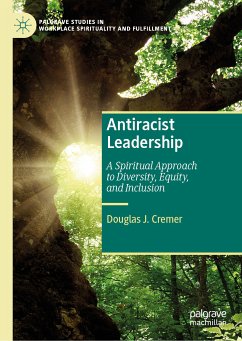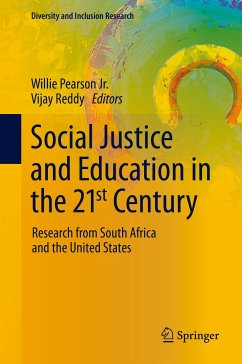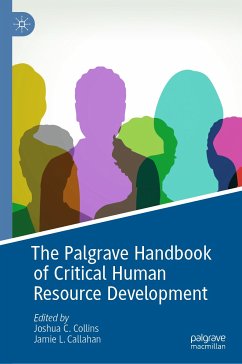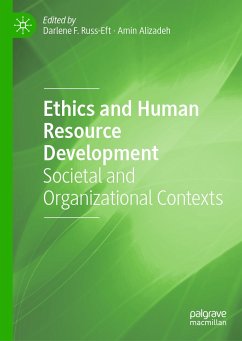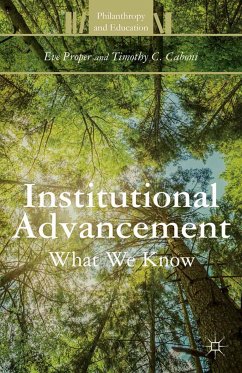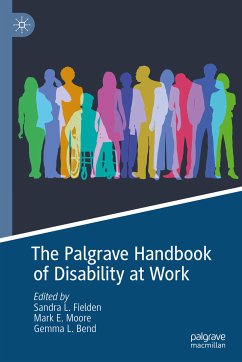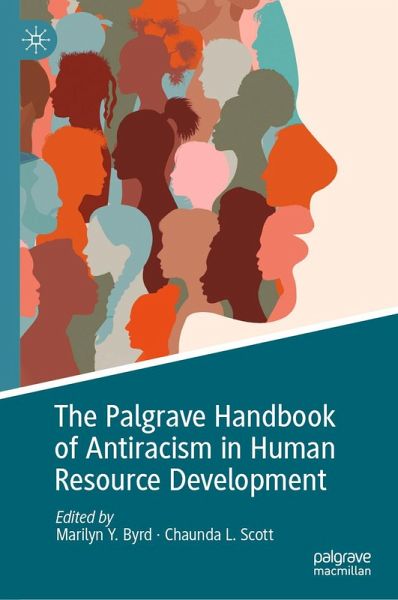
The Palgrave Handbook of Antiracism in Human Resource Development (eBook, PDF)
Versandkostenfrei!
Sofort per Download lieferbar
160,95 €
inkl. MwSt.
Weitere Ausgaben:

PAYBACK Punkte
80 °P sammeln!
This handbook examines the development of antiracism, the antithesis of racism, in the field of Human Resource Development (HRD) and discusses its relevance to the workplace and higher education. Contributing authors from HRD and HRD-related fields present their perspectives on anti-racism and explain how their framing of anti-racism makes a contribution to HRD research, theory, and practice.Though antiracism is a critical, emerging topic, it has received limited attention in the literature. Its focus is the eradication of racism while delivering justice and emancipation. This collection advan...
This handbook examines the development of antiracism, the antithesis of racism, in the field of Human Resource Development (HRD) and discusses its relevance to the workplace and higher education. Contributing authors from HRD and HRD-related fields present their perspectives on anti-racism and explain how their framing of anti-racism makes a contribution to HRD research, theory, and practice.
Though antiracism is a critical, emerging topic, it has received limited attention in the literature. Its focus is the eradication of racism while delivering justice and emancipation. This collection advances the concept by highlighting ways that research, theory, and practice are shifting the conversation to dismantling and eliminating racism. It shows how racism has traumatized marginalized individuals, limited their participation in the workforce and society, and hindered their psychological well-being.
This Handbook is divided into 4 sections: the historical foundations of racism; knowledge derived from research, theory, and lived experiences; practical application of antiracism in educational and workplace settings; and the future of antiracism research.
Coming at a time of racial unrest and much discourse on race, this work provides scholars, professionals, and students with a body of research and practical examples that introduces and informs them on the concept of antiracism in HRD. Though the focus is on the US, the arguments put forth in this handbook are not localized, they are universal and can be applied in multiple contexts.
Though antiracism is a critical, emerging topic, it has received limited attention in the literature. Its focus is the eradication of racism while delivering justice and emancipation. This collection advances the concept by highlighting ways that research, theory, and practice are shifting the conversation to dismantling and eliminating racism. It shows how racism has traumatized marginalized individuals, limited their participation in the workforce and society, and hindered their psychological well-being.
This Handbook is divided into 4 sections: the historical foundations of racism; knowledge derived from research, theory, and lived experiences; practical application of antiracism in educational and workplace settings; and the future of antiracism research.
Coming at a time of racial unrest and much discourse on race, this work provides scholars, professionals, and students with a body of research and practical examples that introduces and informs them on the concept of antiracism in HRD. Though the focus is on the US, the arguments put forth in this handbook are not localized, they are universal and can be applied in multiple contexts.
Dieser Download kann aus rechtlichen Gründen nur mit Rechnungsadresse in A, B, BG, CY, CZ, D, DK, EW, E, FIN, F, GR, HR, H, IRL, I, LT, L, LR, M, NL, PL, P, R, S, SLO, SK ausgeliefert werden.



